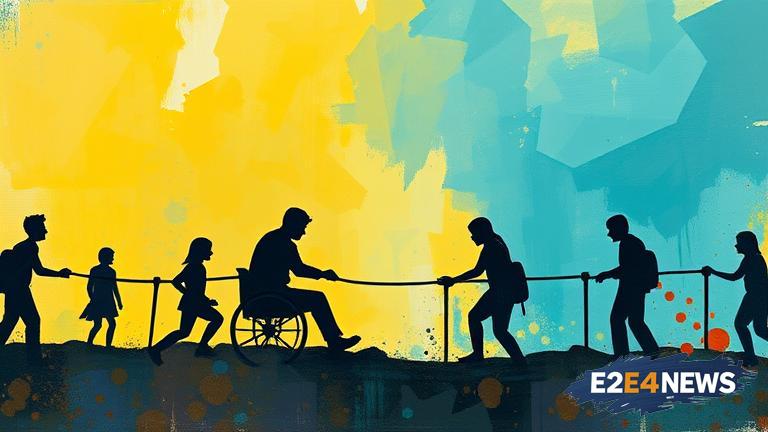Invisible disabilities, such as chronic illnesses, mental health conditions, and neurological disorders, affect a significant portion of the population. Despite their prevalence, these conditions often go unnoticed, leaving those affected feeling isolated and marginalized. It is essential to raise awareness about invisible disabilities to promote inclusivity and understanding. By doing so, we can work towards creating a more supportive and accommodating environment for individuals with invisible disabilities. This can be achieved through education and advocacy, as well as by sharing personal stories and experiences. Many people with invisible disabilities face significant challenges in their daily lives, from navigating social situations to accessing healthcare and employment opportunities. By listening to their stories and amplifying their voices, we can gain a deeper understanding of the issues they face and work towards finding solutions. One of the primary challenges associated with invisible disabilities is the lack of visibility itself. Because these conditions are not always apparent, it can be difficult for others to understand and empathize with the struggles that individuals with invisible disabilities face. This can lead to feelings of frustration, anxiety, and depression, which can further exacerbate the condition. Furthermore, individuals with invisible disabilities often encounter skepticism and doubt from others, which can be damaging to their self-esteem and overall well-being. It is crucial to recognize that invisible disabilities are just as valid and deserving of attention as visible disabilities. By acknowledging this, we can work towards creating a more inclusive and supportive environment that values diversity and promotes equal opportunities. Empowering invisible disability awareness requires a multifaceted approach that involves education, advocacy, and community engagement. This can involve organizing awareness campaigns, hosting events and workshops, and providing resources and support for individuals with invisible disabilities. Additionally, it is essential to involve individuals with invisible disabilities in the decision-making process, ensuring that their voices are heard and their needs are met. By working together, we can break down barriers and create a more inclusive and supportive society. Invisible disabilities affect people from all walks of life, regardless of age, gender, or background. It is essential to recognize that these conditions can affect anyone, at any time, and that they are not a reflection of an individual’s character or worth. By promoting awareness and understanding, we can work towards creating a more compassionate and empathetic society. Moreover, empowering invisible disability awareness can have a positive impact on mental health, as it can help reduce stigma and promote self-acceptance. When individuals with invisible disabilities feel seen and heard, they are more likely to seek help and support, which can lead to improved mental health outcomes. In conclusion, empowering invisible disability awareness is crucial for creating a more inclusive and supportive society. By raising awareness, promoting education, and advocating for the rights of individuals with invisible disabilities, we can work towards breaking down barriers and promoting equal opportunities. It is time to recognize the validity and importance of invisible disabilities and to work towards creating a more compassionate and empathetic world. With collective effort and dedication, we can make a positive impact and create a brighter future for individuals with invisible disabilities. The journey towards empowerment begins with awareness, and it is essential to continue the conversation and promote education and advocacy. By doing so, we can ensure that individuals with invisible disabilities receive the support and recognition they deserve. Ultimately, empowering invisible disability awareness is a matter of human rights, social justice, and compassion. It is our responsibility to create a more inclusive and supportive environment that values diversity and promotes equal opportunities for all.
